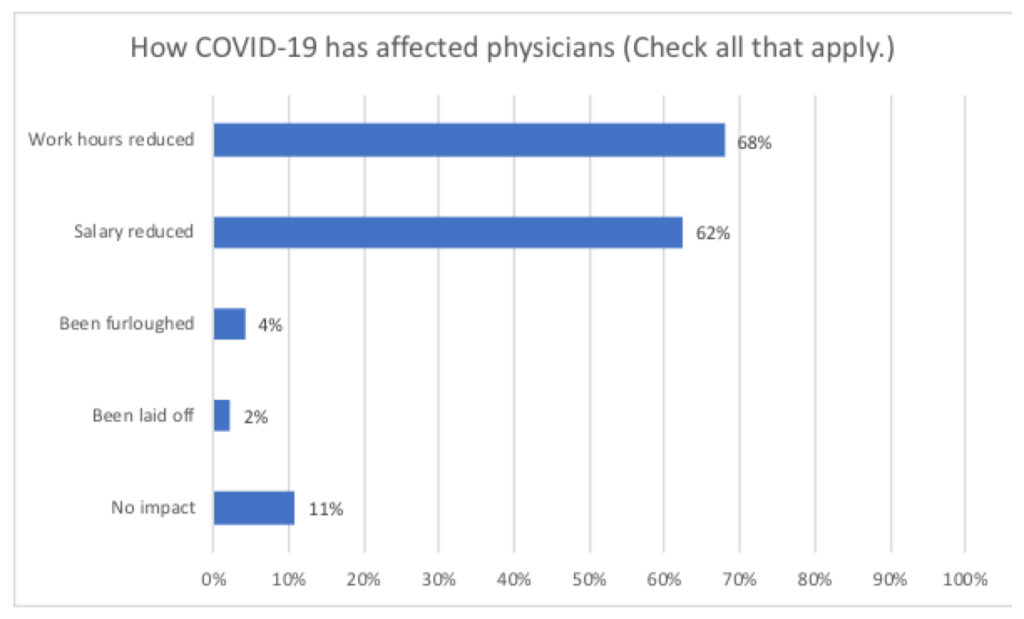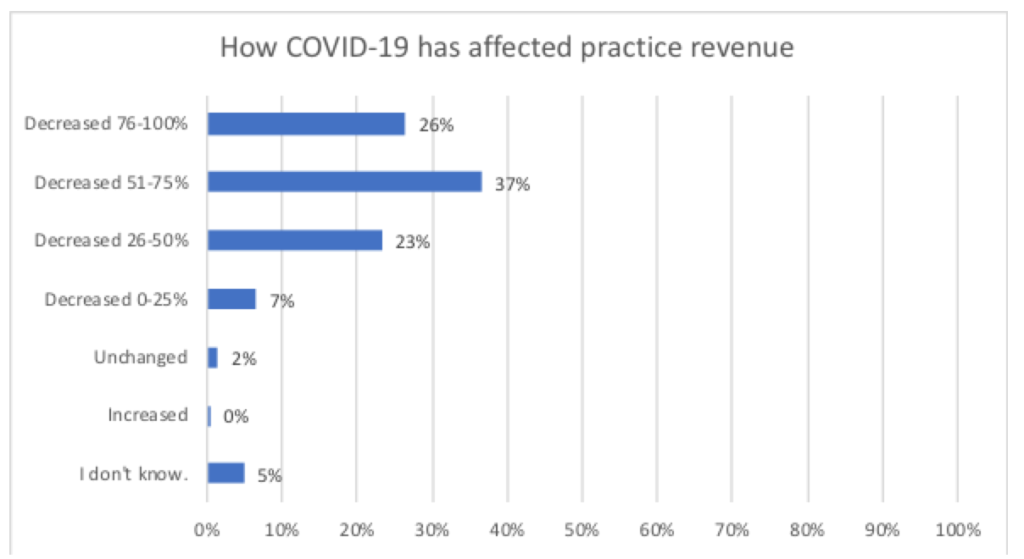Patient Visits Cut in Half or More; Practice Revenues Slashed

Mega Doctor News
Like most independent medical practice physicians struggling to stay afloat during the COVID-19 pandemic, Austin pediatrician Brian Temple, MD, had to make a critical choice: reduce salaries and work hours, or lose the staff and pediatric practice he and his partner had built over six years.
“From the beginning of March, when all this hit, business has been down 50 to 60 percent. We’ve had to decrease hours for everybody,” said Dr. Temple. “We initially cut the nurse practitioners from 32 to 20 hours, and we are holding the line and dipping into savings, but hopeful we will be able to retain everyone.”
Dr. Temple is far from alone. The COVID-19 Impact Survey by the Texas Medical Association (TMA) found 68% of practicing physicians’ work hours have been cut, and 62% have had their salaries reduced. While half of all physicians surveyed statewide took a salary reduction, the percentage of physicians in Travis County taking a pay cut was significantly higher, at 75%.
“It’s been really difficult. The next two to three months will dictate what our staff numbers look like moving into winter,” said Dr. Temple, hoping to avoid layoffs.

Texas’ economic shutdown forced by COVID-19 has significantly reduced patient visits, slashing the revenue generated by regular check-ups and walk-in visits. According to the survey, two-thirds of physicians reported their patient volume had decreased by half or more as patients canceled their appointments. As a result, 63% of physicians reported their revenue decreased by half or more.

Denton obstetrician-gynecologist (OB-Gyn) and TMA Board Trustee Joseph S. Valenti, MD, said the loss of revenue forced his offices to close temporarily, then reopen on a limited basis. “We were down quite a bit, we were closed and went to telehealth for a while, but of course that provided only 10% of what we lost, and certainly not enough to live on,” Dr. Valenti said.
If medical practices cannot survive, patients could face greater access-to-care challenges in the future, perhaps when they will need it most: as the world faces residual effects from the pandemic, and job losses and the rate of uninsured Texans rise amid a threat of potential long-term health ramifications.
Cash flow problems forced nearly two-thirds of doctors to apply for small business loans and other financial assistance, according to TMA’s survey. TMA President Diana L. Fite, MD, said primary care physicians, especially pediatricians and OB-Gyns, are struggling to get help.
“Many physician practices work on a fairly tight margin of profit, especially those who see a lot of Medicare, Medicaid, or HMO patients,” she said. “We have heard from physicians who are charging on their personal charge cards, taking money from their own savings plans, and borrowing money just to pay the bills and their office staff. Meanwhile, they have no patients or very few patients to see.”
Physicians are hanging on, though. The survey indicated fewer than one-third of doctors laid off or furloughed staff to cut costs. Dr. Fite said the survey numbers show Texas medical practices are fighting to stay alive.
“The information from the survey is important, and we’ll use it to help our Texas physicians keep their offices open and get them up to speed again” to serve Texas patients, said Dr. Fite.
About the survey
TMA conducted this online survey May 4-11, 2020, to ask Texas physicians about the financial impact COVID-19 has had on their practices. The survey received 1,548 responses. Physicians who identified their primary type of practice as resident or teaching, administration, or research at the beginning of the survey were not presented with additional questions (97% of respondents continued the survey, with results reflected above). Results at the 90% confidence level are reported.
TMA is the largest state medical society in the nation, representing more than 53,000 physician and medical student members. It is located in Austin and has 110 component county medical societies around the state. TMA’s key objective since 1853 is to improve the health of all Texans.








